Dear Js,
Mama’s starting a new evening routine – Crossfit. The video above is of one of the more pleasant nights. But the other night, she left a little later because she had to go I guess. I was tired from work and I got stuck alone with the two of you. Let me remind you that little J is crawling, I cannot breastfeed, big J is a hurricane toddler and 8pm is bath-time. Mama left me at 7.30. Julie was fussy. You were cooperative. We did potty time while Julie rolled around. Somehow we survived bath time, and somehow Julie was happy chilling next to me by the tub without crying. Nobody drowned so it was a success. I didn’t even cry.
Mama came home just as Julie was about to melt down from hunger and sleepies.
Now it’s 11pm. I walked downstairs to a dark living room. I turned all the lights back on. It was my time to work, just like any other night. I was dead, but work is a routine I look forward to. I feel fantastic when I get at least something done each day. Even if it’s just reading one new page of a book.
I found myself wishing, “If only I had more time.” But then I wondered, “How would it be if I wasn’t a dad?” As I entertained that fantasy, I got an unpleasant feeling I didn’t expect. I thought I’d be excited about having free time to do anything I wanted. But I remember I once had free time once, and I was an expert at wasting it. It’s different now. Even though I have no time, I’m more productive than ever. The saying is if you want anything done, give it to a busy person.
I think I know why. I think the key is to have something that makes you suffer. Without suffering, your life will be too sunk into your comfy spot to want to do anything.
Hear me out. As a dad — as any dad does — I have two separate lives. Work, and family. Family is an investment where every day brings a reward. We nurture your growth as a person, and guide your mind and body to become the best person you can be. In turn, that helps us grow as parents too. You force us to see through the wonder of your eyes, and you bully us into becoming better people. For example, your tantrums. We have to learn to deal with them. Your favorite word is No, or “I don’t want to.” Every minute is a crisis that makes me bring all my persuasive weapons to the fight. And even then, sometimes I am helpless.
But because family life is bruising, even hard work in your work life can seem like an escape in comparison. And that’s the funny trick your brain falls for.
See, if I just had work and no family, my brain would want to look for an escape every time work beats me up. I’d want to avoid work to avoid the pain. Most people look for an escape in sports, games, entertainment, Internet, going out, etc. Because if you give your brain a choice between pain and pleasure, it will always choose pleasure. Forget willpower. Your brain is always out to cheat you. The trick is not to suppress cheating, but to encourage your brain to cheat in your favor.
And how you trick your brain is:
If you want to succeed at something hard, always start something else just as hard.
Some people call this “Structured procrastination“, or “Productive procrastination”. In other words, if you know your brain always wants to cheat and procrastinate anyway, don’t fight it. Exploit it. Devise scenarios where the most attractive procrastination options are productive ones.
For me, my two hard projects are being a dad, and my work. When work hurts, I find pleasure in being a dad. When being a dad hurts, I find pleasure in work. And because each inflicts pain in a different way, I can always retreat from one to the other. It’s a perpetual motion motivation machine.
This can work even if you’re not a dad. Whenever you set out to do something hard, don’t do just one thing. Find two goals that are equally challenging. E.g., if you’re trying a new sport, pick up a new instrument too. So, if one gets tough, you’ll be tempted to cheat by doing the other, instead of quitting altogether. And chances are you’ll end up getting better at both. The only caveat is that they have to each be just as difficult and rewarding for you. Otherwise, you’ll cheat with one and never come back to the other.
Somewhat related to that, this next revelation confirmed how we want to raise you two. So we’re on the same page, please first listen to this interview with Paul Zane Pilzer.
It’s no secret that I’m not a fan of schools. Most are more interested in teaching students how to get good grades, rather than teaching skills to learn how to learn and how to solve problems. And even when the schools teach problem-solving, they’re often scoped to solving a very specific problem. Specialized skill is good, but in the real world, what most graduates suffer from is not knowing how to create opportunities to apply their specialized skills.
Why? Because our schools think the way the world works is you need to learn science and math, and if you graduate with good grades, there will be a job waiting for you.
That might have been true for a few decades, but that will no longer be true.

Ronald Harry Coase
Economist Ron Coase predicted this trend in a paper he wrote in 1937 at the age of 27. He later won the Nobel Prize for it in 1991. What’s even more interesting is, his paper Nature of the Firm originally set out to show what causes big corporations to exist.
The main concept was Transaction Cost, namely the cost incurred in an economic exchange. Once upon a time, before big corporations, everyone was an entrepreneur. Each person was good at something, and each person sold his expertise in exchange for good and services. (If you want to go even farther back, read Guns Germs and Steel by Jared Diamond). If you wanted a loaf of bread, you’d go to the baker. If you wanted a shirt, you’d go to the tailor. If you wanted a sword, you’d go to the blacksmith. Big corporations didn’t exist.
Now fast forward to a few decades ago – as individual businesses grew, the costs of hiring individuals per task became inefficient. Before computers, it was common for a big company to staff 1/3 of its payroll with accountants – because everything was in paper. Now imagine having to run out into the street to find an accountant every time you needed something done. The transaction cost was high enough that it was more efficient to say I’m just going to hire you full-time to sit in the office, in case I need you to do something for me.
That’s how firms, and full-time employment started. As time went by, the thinking became, “Since you’re already sitting here in my office, I might as well work you as much as possible, to get the greatest return on my investment.”
So you see, the full-time employment office life that schools are setting kids up for, is a relatively recent phenomenon in our human civilization. And, it is going to vanish soon. In fact, we’re already seeing it disappear.
Why? Because of technology. Technology reduced transaction costs to zero.
Cars gave us the freedom to live somewhere other than where we work. Now, we can talk with someone on the other side of the planet face-to-face, in real time, as if we were sitting in the same room. Because of that, we can also send jobs to someone working on the other side of the planet. Hence, outsourcing.
Technology also multiplies our efficiency. Remember the companies with 1/3 accountants to handle the paperwork? Gone. One person with one computer and digital records can replace 1000 people and building full of paper records.
Pilzer pointed out that we used to be a nation with 95% employment, now down to 50%. Technology has made each of us so productive, we don’t need as many workers. And the trend will continue. Technology will murder more industries and destroy more jobs.
But that’s a good thing. Just like how cars made horses obsolete. Because the function of tech is:
W = P x Tn
(Wealth = Physical Resources x Technology to the power of n)
Without technology, our kind Mother Earth provides a finite amount of resources. Hunter-cavemen could only live off the wild. Fire meant hunters could expand to previously uninhabitable land. Farmers discovered how to grow their own food. Cars used to only run on fossil fuel. Now they run on electricity. We used to only be able to live on Earth. Now we’re making longer and longer camping trips to ISS’ microgravity. And soon we’ll be able to live on Mars.
And that’s why Pilzer proposes that, yes, once upon a time kin the caveman days, we tapped into fixed resources and it was a pie we had to share. But that is no longer true. “Fairness”, “equality” or “wealth distribution” are all obsolete concepts. Because technology gives us unlimited wealth.
Especially now, when the technology has moved from the hands of large corporations to individuals. There used to be only a handful of TV channels. Now, everyone with a phone is an independent video broadcast station.
So, because of technology, what we’ll see is large corporations continuing to dissolve into individual entrepreneurs. That means, each person will need two things: 1) specialized and valuable skills, and 2) knowing how to sell themselves, their services and their products. Oh, and 3) be a master of technology, of course. Anyone blindly following the education system to prepare to work in big factory-corps will be shockingly disappointed when they shoot out of the tunnel to discover there are no more big corporations.
Why do I write to you two? It sure is painful. I guess one of the reasons is to leave you a trail of breadcrumbs. So if you find yourself depressed and seeking like I did in my twenties, you could stumble upon this and see what I did and where I went, and where I went wrong.
Eleanor Roosevelt said: “Learn from the mistakes of others. Because you can’t live long enough to make all of them yourself.”
I wanted to share with you the most important lessons I learned, as well as the struggles and challenges. Because you almost never get to read about struggles, since people prefer stories of instant magical transformations. I want to show you my failures, so you will enjoy yours knowing it’s how it’s supposed to be. I’ve also left you my curated reading list – books I recommend because each one of them answered a big question and changed my life.
But, what you may not realize yet is all this writing I’m leaving behind is unvested gold. This “gold” only vests if you or I do something that makes other people curious about you. If I become fascinating to others, people might be curious about what I have deemed my most important lessons I want to teach my children. If you become fascinating to others, they might want to know what your father was like, and what secrets he left you with.
For various reasons, I have not made these letters public. I have sort of made it discoverable to people who search, but not public and not shared. If I wanted to, I could pitch hooks like “Father wrote letters to his children every week since they were born til the day he died.” Feel free to steal that hook after I die. If people are fascinated by you, maybe you could pay a good editor to turn my ramblings into a book.
But, like I said, it only works if people are first fascinated by you. Which also happens to be the foundation of selling anything.
Because the only way anyone will choose you over someone else — before anyone wants to give you money for your product, skills or expertise — is if you can first prove you made miracles. Key words there are Proof and Miracle. So if you’re thinking of starting a business, first nail down your ideal customer, then find the hot buttons and tailor a solution. Then, fox your way about stacking up success stories — irrefutable proof that your solution works. Better yet, that you produce miraculous transformations. Only the proof of instant miracles sways people to you.
Speaking of selling, the presentation was a success, thanks for asking. I’m still high. It’s a great feeling to hold an audience’s fascination. I had only one goal – to implant only ONE idea in their minds: Leverage. The top brass were there, just short of the company-wide VP. It didn’t matter, of course. People are animals. I hit them in the feelings all the same. Wanna see what I showed them? Here are my slides. Follow along, I’ll break down the key points.
They accepted the meeting thinking it was going to be a demo. I opened with incongruence – “How to crush
Next: Relevance. Always start from something they care about. The company stock price was at its highest, so I said let’s talk about stock price. It got laughs. And then a sobering picture: the stock price overlayed with the competitor’s. The picture was clear – they were joined at the hip since the beginning of time. This set the context: There is a trend. Nothing you tried has ever worked to shake them. How do we break the trend?
Now we were on the same page. I outlined the urgent problem with no solution. But the idea was simple. If what you’ve been doing doesn’t work, how you get different results is by doing something different. Einstein said, “Madness is doing the same thing over and over and expecting different results.” I saw nods all around. They were at the edge of their seats.
Next, I challenged them again with a silly puzzle: “If two people have the same resources, how can one person get multiple results of the other?” Are you seeing a pattern yet? I never assume I have their attention. I detonate bangs and earn it at every slide. Even if it’s a simple question, everyone anticipates the answer to see if they got it right. And when the answer is revealed, you get a nod. Nods are important. Each nod and each little yes results in the big yes at the end.
Now, I acknowledged that Leverage is not a new idea. You can’t keep building hype too long before the adult in each person’s brain goes, “This is bullshit.” So to soften the hype, and to counter the objection, you admit the weakness in your own argument. In my case, it was, “Yes, I know you already use leverage. You use it well in all these places.” This makes them feel good. But just when they think they’re safe, I trip them again:
“What other leverage have you not exploited?”
Oh SH** There are other kinds? I wanted them to feel suddenly inadequate. Now they must find out the answer.
But I left the wound gaping. Instead, I tell them a story. It was about Vilfredo Pareto, the economist who popularized the Pareto Principle. OR the 80-20 principle. I slammed them with real-world examples to build a rhythm… then surprised them with an example close to home: 20% of your projects produce 80% of your results. But which 20%? I was twisting the dagger.
The next step was to focus the problem: “How two find the 20%?” And withheld the answer still. Another pattern interrupt: a picture of Muhammad Ali quoted, “Float like a butterfly, sting like a bee…” I quizzed them if they knew what the rest of the quote was. They were almost blue with held breaths. “Your hands can’t hit what your eyes can’t see.”
Anyway, that’s the set up. Flashbang interrupt, build anticipation, highlight the problem, open the wound, twist the dagger, then present the solution. I proposed that my solution was a system that helps you uncover the 20% that produce 80% of the returns. So we can be surgeons, not blind butchers. That was to shame them for not having this. I took 20 minutes to open, then 20 minutes for my demo, then handed it off to my colleague for the 2nd demo, then back to me to close.
As far as my goal went, I think they got it. It can be hard sometimes, to infect someone with an idea and make it stick. You can see that I used several different analogies, stories and pictures to communicate “Leverage”. You have to run the risk of repetition, because nothing sticks without repetition. If you do a good job, no one notices the repetition because they are told a different stories.
When the demo started, the VP said, “I guess I need to put on my glasses for this.” Good, he felt he needed to pay attention. Then I showed him how easy it was to see the impact of any effort, with the “ROI calculator” widget I made. He looked at the Director and said, “Are you sure you wanted to put this guy in front of me? He’s showing me the numbers you have to deliver.” They joked and jostled, but that was exactly the discussion we needed to have. No more chasing unicorns. Let’s have some discipline to do some math and get some hard numbers grounded in reality. Only then can we have some productive discussions. Wishing and dreaming and guessing are all wastes of time.
At the end the Sr Director and VP had a squabble. VP said, “We need to still take risks for big wins.” Sr Dr said, “Biggest wins come from staying in the hole and multiplying the back-end.” Of course, they were both right. To increase your credibility, you must shine a spotlight on your flaws. Because if you are seen as someone who is willing to be honest about flaws, the good things you say are more likely to be true.
So I offered the analogy they were missing. Henry Ford and cars. No amount of data or market research can justify a new market or product, like cars. No one could have predicted that one day everyone would own them. There were no roads or gas stations. No one could know how it would change the way people lived and worked, and just about everything else. Of course, I shot my own idea in the foot at the same time, because my idea was all about leverage in the back-end. But ironically, that strengthened my argument. They stopped bickering, and I inserted my point: “Yes, we must always take risks and go for big things, but at the same time, we must make sure our back-end is a super-optimized rocket race car, not a rinky-dinky school bus.”
Mama congratulated me. I said I don’t want to be happy it went well. That’s a trap I am wary of, because once you get addicted to being happy when things go well, your happiness becomes hostage to how often you have things going your way. I decided I want to be happy that I got more practice, and that I got to apply Leverage in my personal life. Little do they know, the same Leverage I’m recommending them, is the same one I’m using to cheat. I am lazy. That’s why I started this project to begin with. I didn’t want to do “real” work. So I built this thing that many people find valuable. And because it’s a system (an asset), I built it once and I reap the rewards forever. Most days I just walk around, chat with people, answer their questions and present solutions. No one knows what I’m up to – if I’m not somewhere, they assume I’m just meeting with someone else about Achilles.
Alright, alright. This old man’s done rambling.
Is this my longest letter yet? I’ll finish fast. This week in pictures…
Undies. You’ve started wearing them to school. Your favorite pair is the one with 3 of your favorite trains.
Potty time and friends:
Otter:
Spying on Otter:
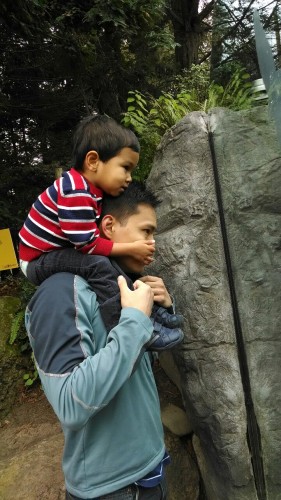
Spying on Otter

Rice ball before picking up Kaz Teriyaki for lunch at park
Problem-solving:
SICK SICK SICK – hard crying. Then when your medicine kicked in, you snapped back to happy jolly boy. We sometimes don’t notice what a happy kid you are. These stark comparisons nail the point home. At 105 F you were delirious and said there was sand on the bed and ask why my hand was covered in sand. You slept with us, whole family in bed. We introduced you to your White Cell friends, Virus and Bacteria. Thank goodness it only lasted 48 hours and thank goodness no one else got sick.
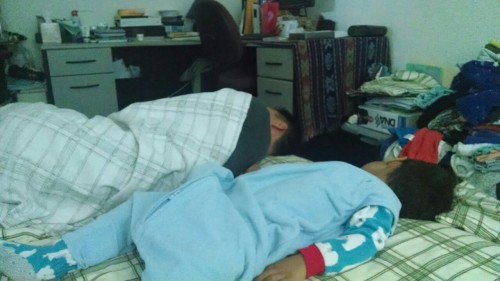
Sleeps like daddy
Supposed to be sick, read the whole Cat in the Hat book:
“Can you show me how you can make one we can go in tomorrow?”
You were telling me about the things you said to your friends at school. “First Rhymes. I said this to my friends today too.”
Now that I’ve finished Dweck’s Mindset book, I’m now reading “Profiles of Genius: 13 Creative Men Who Changed the World” by Gene Landrum.
Mathematics.
Inside out:
All better!
“Sometimes I want to make time go backwards so that we can go to the store!”
I guess he’s ready to learn about entropy and the arrow of time
I can turn back time. How. I just have to go back downstairs. Okay. Show me.
It’s 10. Joshua, look at the clock. It’s… *sob* ten…?
I don’t have time to tell you about this man. Your homework is to read up about Giordano Bruno.
Julie – you’re becoming more of a girl each day. I know you’re a girl, but you were more a baby before. Now I can almost imagine the conversations we’ll have.
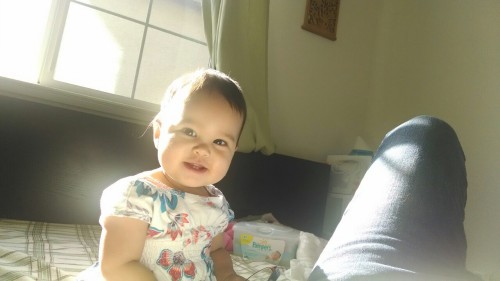
🙂

You’ve been snuggly lately
Love,
Dad
P.S. Sad news – grand-abu’s leg needed to be amputated. She’s back at her nursing home. Doctors say she’s a champion. Must be scary to lose your mind and your body. I don’t know what to think about that.
P.P.S. – Mama had two referrals this week.
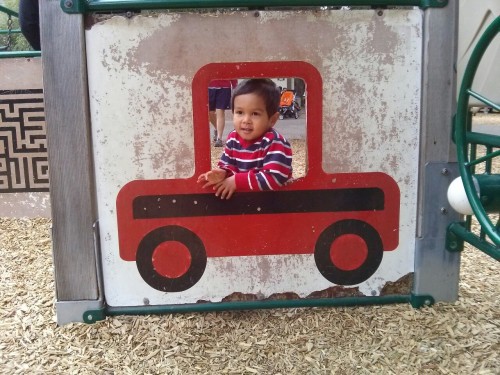
Beep Beep! See you next week!


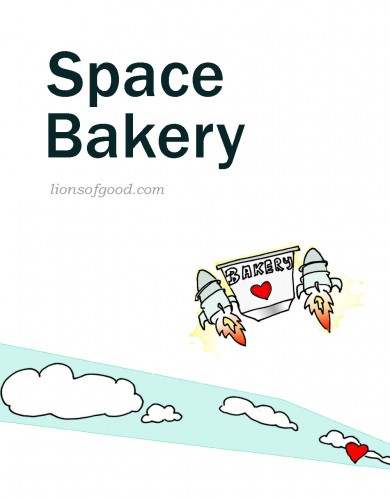
Add your comment: